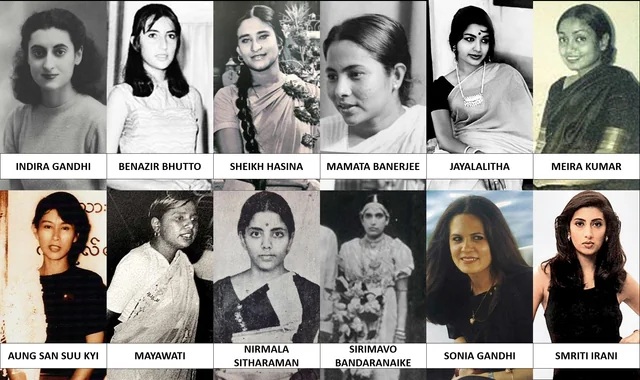What The Sheikh Hasina Verdict Reveals About Misogyny In South Asia
Nov 21, 2025 | Shalini Rai
From the attire they chose to wear to office to the number of children they have (or chose not to), everything about women leaders in South Asia is scrutinised with the magnifying glass employed by misogyny, with close help from a rabidly patriarchal society
Earlier this week, news came in that ousted Bangladesh Prime Minister Sheikh Hasina has been sentenced to death – by a special tribunal – over her alleged involvement in the deadly student-led uprising in Bangladesh in 2024.
The verdict has been criticised in India and across South Asia. The decision of the tribunal is being widely seen as vindictive and flimsy. According to Veena Sikri, a veteran diplomat, “It is nothing but a kangaroo court.” Sikri served as India’s high commissioner to Bangladesh from 2003-2006.
Bangladesh’s International Crimes Tribunal (ICT) was appointed for trials only of those who had committed war crimes in the 1971 Liberation War. Speaking to The Print, Sikri asked what legality does the ICT have in trying a former prime minister.
The ICT’s decision, although shocking, was widely expected. This was primarily because of the circumstances in which Hasina had to leave her country and seek asylum in India. Given that background, it was hardly pragmatic to expect a fair trial and lenient punishment for her.
Another reason for the predictable nature of the judgment is the widespread misogyny prevalent in South Asia — Bangladesh, India, Pakistan, Sri Lanka, Nepal and others.
Even a cursory glance at the manner in which these nations have treated their elected women leaders in the past is enough to glean deep-rooted misogyny and gender-based anarchy prevalent there.
From Indira Gandhi (former Indian Prime Minister) to Benazir Bhutto (former Pakistan Prime Minister), Sirimavo Bandaranaike (former Sri Lankan Prime Minister and the world’s first female Prime Minister) to Aung San Suu Kyi (former Myanmar minister and a Nobel Peace Prize winner), you just have to go back a few years and dust off history books to unearth examples of women-centric detestation which has affected the length of terms these (and many other) women spent in office. Needless to say, it also had an impact on the quality of governance they could deliver.
From the attire they chose to wear to office to the number of children they have (or chose not to), everything is scrutinised with the magnifying glass employed by misogyny, with close help from a rabidly patriarchal society.
With Indira Gandhi, there were derisive calls of her being a ‘goongi gudia’ (mute doll); her marriage to Feroze Gandhi was endlessly inspected; she was romantically linked (maliciously) to a spiritual leader. When she was gunned down in her official residence by members of her own security detail in October 1984, some exulted and termed her end ‘good riddance’. Needless to say, sexist slurs and highly objectionable words to describe her were also employed.
In Pakistan, Benazir Bhutto was ridiculed by this same misogynist ecosystem – for having too many children, being slightly taller than her husband and having a fake English accent. When she was assassinated at a public rally in Pakistan’s Rawalpindi in December 2007, the reactions were a mix of relief and ill-placed exultation. It appeared as if a nation like Pakistan – where women are in dire straits currently – breathed a collective sigh of relief that a woman was no longer in charge.
Myanmar is technically in Southeast Asia but merits a mention in this context. The legendary Aung San Suu Kyi of Myanmar, who spent years behind bars – sentenced to incarceration by the whimsical military junta – is an inspiration to millions. She was awarded the prestigious Nobel Peace Prize in 1991 for pioneering a non-violent struggle for democracy and human rights in Myanmar. She was appointed a minister for a brief period (2016-2021) but was removed when the military seized power. By not allowing Suu Kyi to lead her country out of the morass of tyranny and anarchy, Myanmar’s military junta has deprived their nation of a deserving leader and mobilizer of people. It yet again comes down to the ‘place’ women are assumed to be best occupying and this attitude is mired in misogyny.
There are examples galore where charismatic, highly motivated and deserving women leaders have missed out on steering their nations toward peace, glory and prosperity solely because of their gender and the concomitant outlook that invites. This is true even in the 25th year of the 21st century.
Could there be anything more tragic? Could this kind of misogyny not have been relegated to the 16th century, where it arguably belongs? Isn’t it time to expose patriarchy for what it is – feeble, toxic and grossly out of step with the aspirations of women and therefore fit to be consigned to the dustbin of history?
